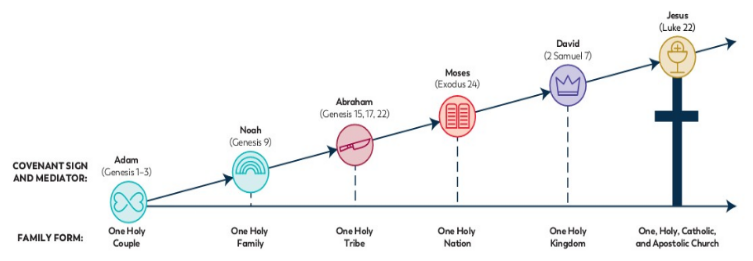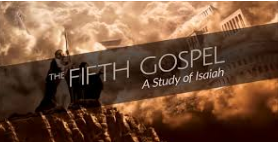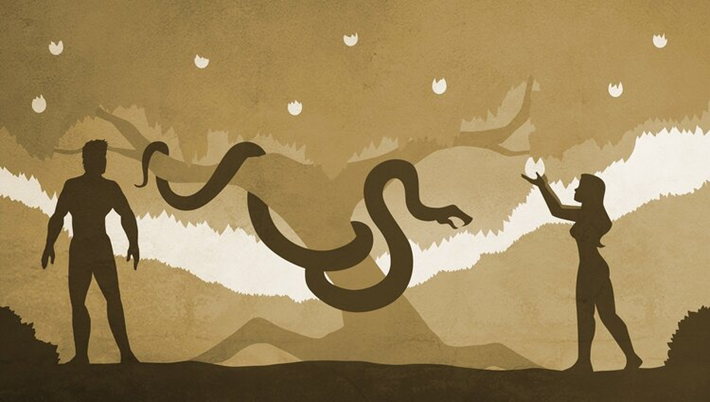01.14.25 Wedding at Cana & the Prophet Isaiah
- tmaley
- Jan 16
- 12 min read
Updated: Feb 17
Opening Prayer:
Cana Prayer
O God of abundant mercy and love, you always provide us with more than we ever imagined.
Responding to the need brought to his attention by Mary, your Son Jesus turned water into wine
at the wedding feast at Cana. Those overflowing jars are a symbol of your prodigious love for us.
And as you taught us to pray together…
Our Father who art in heaven, hallowed be your name.
Your kingdom come, your will be done, on earth as it is in heaven.
Give us this day our daily bread,
And forgive us our trespasses as we forgive those who have trespassed against us.
And lead us not into temptation, but deliver us from evil. Amen!
Upcoming major holy days: Lent begins Ash Wednesday, March 5; Solemnity of St. Joseph, March 19.
TODAY:
· Identity
· Gospel reading for 2nd Sun in Ordinary Time 1/19: The Wedding at Cana, John 2:1-11
· Bible Timeline: Prophets of the Southern Kingdom (Judah). Tonight, Isaiah.
Apologetics of the Week on Identity
Proverbs 4 tells us that what we do flows from who we are. “Who we are” is the definition of “identity.” Only humans think in terms of finding our identity. A moose is a moose and doesn’t seek to be a bear, a bee, or a tree. Nature supplies their “identities.” Nature supplied ours as well, until God gave us a spiritual nature, which included God’s spiritual identity (God’s image/likeness). This is the starting point for our identities. We combine our lower natural/animal identity with our higher spiritual identity to develop who we are – each of us totally unique. If we disassociate from the source of our spiritual identity (God), we become a being without an identity, a being in search of identity in all the wrong places (reputation, power, self-created images, etc.). Our desire for identity is one of God’s calling cards, but without God, our identity is a void that can never be filled. Think Sysyphus.
The Wedding at Cana, John 2:1-11

Context: This wedding takes place at the beginning of Jesus 3 ½ year ministry not long after his baptism by John the Baptist. Cana is about 5 miles north of Nazareth and it will become the place of Jesus’ first public miracle. Like all things Jesus, it will signify many levels of meaning. We will read it straight through first so you can get the feel for the story, and then we will go through it again and dissect it’s meaning.
There was a wedding at Cana in Galilee, and the mother of Jesus was there.
Jesus and his disciples were also invited to the wedding.
When the wine ran short, the mother of Jesus said to him, “They have no wine.”
And Jesus said to her, “Woman, how does your concern affect me? My hour has not yet come.”
His mother said to the servers, “Do whatever he tells you.”
Now there were six stone water jars there for Jewish ceremonial washings, each holding twenty to thirty gallons.
Jesus told them, “Fill the jars with water.”
So they filled them to the brim. Then he told them, “Draw some out now and take it to the headwaiter.”
So they took it. And when the headwaiter tasted the water that had become wine, without knowing where it came from — although the servers who had drawn the water knew — the headwaiter called the bridegroom and said to him, “Everyone serves good wine first, and then when people have drunk freely, an inferior one; but you have kept the good wine until now.”
Jesus did this as the beginning of his signs at Cana in Galilee and so revealed his glory, and his disciples began to believe in him.
Exegesis
There was a wedding at Cana in Galilee, and the mother of Jesus was there.
Where was Joseph?
The implication is that Joseph has already died. We have no details of his death, only that it must have occurred between Jesus’ 12-year-old visit to the Temple and 30 years old when Cana happened.
Jesus and his disciples were also invited to the wedding. When the wine ran short, the mother of Jesus said to him, “They have no wine.” And Jesus said to her, “Woman, how does your concern affect me? My hour has not yet come.”
Woman was an endearing term then. Where else does “woman” appear?
1…Genesis 3. Before the Fall, Eve was called “woman.” After the Fall, it says Eve became the mother of all the living. There are no accidents with Jesus. What connection might this have with Mary? Mary is the new Eve.
2…On the cross, Jesus says to Mary, “Woman, behold your son.” And to John, “Behold your mother.” In the literal sense, Jesus was indeed giving the care of his mother over to John since a single woman without a husband or son in those days was dangerous, but referring to her as “woman” again hearkens to Eve, as Mary is the New Eve for the Age of Salvation, in a sense, the new mother of us all (no longer Eve).
How does your concern affect me? My hour has not come.
Literal translation: “What is that to me and to thee?” or… What does that have to do with us?
My hour has not come: Jesus’ statement indicates that the full revelation of his identity and mission is not yet to be revealed (his passion, death, & resurrection revealing the full mystery of his coming – that he had to die for humanity’s sins to reopen the gates of Heaven to them; this is what makes forgiveness free for the asking.
His mother said to the servers, “Do whatever he tells you.”
This response shows Mary is not offended and, in fact, she knows Jesus will do something. Jesus knows it, too, for he immediately acts.
Even though “his hour” is not here, he obeys his mother and solve this problem by performing a very unique miracle.
It helps to understand that the meaning of “miracle” is “sign,” which means it signifies something important. It points to a reality in the future. Here, it points to that “hour” that will come later.
What is the sign and what does the signify?
The sign is changing the water into wine. It points to the Last Supper when he will transform the wine into his blood, which will change the world forever.
However, there is another signification going on. To know what this is, we have to look at the prophets who spoke about it. Here, Isaiah describes the coming Age of Salvation:
For Zion’s sake I will not be silent, for Jerusalem’s sake I will not keep still, Until her vindication shines forth like the dawn and her salvation like a burning torch.
Nations shall behold your vindication, and all kings your glory; You shall be called by a new name bestowed by the mouth of the LORD.
You shall be a glorious crown in the hand of the LORD, a royal diadem in the hand of your God.
No more shall you be called “Forsaken,” nor your land called “Desolate,” but you shall be called “My Delight is in her,” and your land “Espoused.” For the LORD delights in you, and your land shall be espoused.
For as a young man marries a virgin, your Builder shall marry you; and as a bridegroom rejoices in his bride so shall your God rejoice in you. – Isaiah 62:1-5
Jesus’ miracle is also answering this equally huge prophecy from Isaiah. What is it?
The prophecy that God sees man’s redemption as a wedding feast, a marriage between Him (Jesus is the Bridegroom) and the Church (we are the Bride), for God is being reunited to us. It is the purpose of Jesus coming here, which is to undo the Fall of Man.
Now there were six stone water jars there for Jewish ceremonial washings, each holding twenty to thirty gallons. Jesus told them, “Fill the jars with water.”
That’s 150 gallons! This symbolizes the lavish abundance of grace God gives to humans.
There’s an old joke that says this proves Jesus was a Catholic, because only Catholics drink that much.
Then he told them, “Draw some out now and take it to the headwaiter.” So they took it. And when the headwaiter tasted the water that had become wine, without knowing where it came from — although the servers who had drawn the water knew — the headwaiter called the bridegroom and said to him, “Everyone serves good wine first, and then when people have drunk freely, an inferior one; but you have kept the good wine until now.”
First, the headwaiter confirms for us that this was no mistake. This was not only wine; it was incredible wine!
Secondly, the headwaiter goes to the bridegroom who was responsible for the wine, but the bridegroom of this wedding wasn’t responsible for this wine. Who was?
Jesus. Jesus is now the bridegroom in the story. His miracle is pointing to the unification of man and God that will be achieved on the cross.

Bible Timeline



Where we left off: Northern Kingdom prophets: Hosea, Amos, and Jonah. Assyrian conquest. In Nov, we studied Elijah and his successor, Elisha. In Dec, we tackled Hosea, Amos, and Jonah – all of the Northern Kingdom, none of who’s kings had any redeeming qualities after splitting from Solomon (Judah). Now we move over to prophets of Judah, the Southern Kingdom and home to Jerusalem and the lineage of David.


Isaiah, prophet from about 640-600 BC, lived ~670-590 BC (70-80 years old).
Isaiah, the greatest of all the prophets, lived at a critical time in Israel’s history when the very existence of the people was threatened by the king of Assyria in the mid-700s BC.
First, some facts on Isaiah...
Isaiah is 66 chapters long, the most number of chapters of any book in the Bible after Psalms (150), followed by Jeremiah (52 chapters).
Isaiah’s writings span three time periods:
- The first was 740-700 BC, called Proto-Isaiah (First Isaiah), chapters 1-39.
- The second is during the Babylonian Exile (600-530 BC), called Deutero-Isaiah (Second Isaiah), chapters 40-55.
- The third is “post-Exile,” called Trito-Isaiah (Third Isaiah), chapters 56-66.
You may wonder how Isaiah could have written the second and third sections since those time frames are after his death. Jewish and Christian tradition has always held that Isaiah prophesied about the coming calamities (i.e., the Exile) and the chance to start again (post-Exile). Certainly God is capable of inspiring Isaiah to do this. Moreover, there is literary consistency of language and imagery throughout the entire book. Nevertheless, because of the accuracy of the prophesies, modern scholars hold that there had to be three writers, although probably all of the Isaian school, who wrote the second and third parts in Isaiah’s name. The Church’s position mirrors that of Judaism in that whether it was all written by Isaiah or his disciples, the entirety of the book was inspired by the Holy Spirit.
Isaiah’s Call
Isaiah's call by God is vividly depicted in Isaiah 6. In the year of King Uzziah's death, Isaiah had a profound vision of the Lord seated on a high throne, surrounded by seraphim (highest-ranking fiery angels with six wings) who proclaimed God's holiness. Overwhelmed by his own unworthiness, Isaiah lamented his unclean lips and the sinful state of his people. A seraph then touched his lips with a live coal from the altar, purging his sins. Following this purification, Isaiah heard the Lord call out, "Whom shall I send?" and he found himself responding, "Here am I; send me," which indicated his readiness to fulfill God's mission to the people.

Isaiah's prophecies are characterized by vivid imagery and profound theological insights, emphasizing God's sovereignty and the call to repentance. The prophet has more to say about the greatness of God (ch. 40, 43), the horrors of the tribulation (24), the wonders of the millennium (35), and the ministry of Christ (53) than any other biblical book.
Following the prophetic mold, he begins by warning the kings, priests, and people of the consequences of their sins (i.e., Isaiah 1:4-6) and the desolation that will follow their rejection of God. Then, amidst these warnings, he proclaims a message of hope, foretelling the coming of a Messiah who will bring salvation and establish God's kingdom (i.e., Isaiah 9:6-7; 11:1-10); finally, he writes of the eventual restoration of Israel (i.e., Isaiah 61:1-3) as a light to the nations.
Isaiah’s early prophesies about great national danger came during the rule of an unworthy king – Ahaz. Isaiah told Ahaz he just needed to depend on God, but Ahaz preferred to find other alliances against Assyria, such as Egypt. Isaiah told Ahaz to name a sign – any sign – and the LORD will give it to him, to prove God’s allegiance. Famously, Ahaz responded,
“I will not ask, nor will I put the LORD to the test.” – Isaiah 7:12
The Prophecy of the Virgin Birth… In response to Ahaz’s false humility, Isaiah responds:
“Listen, O house of David! Is it not enough that you weary men, but must you also weary my God, also? Therefore the Lord himself will give you a sign: Behold, the virgin will be with child and bear a son, and he shall be named Emmanuel.” – Isaiah 7:13-14
The failure of Ahaz to listen nearly brought an end to the Southern Kingdom of Judah. Fortunately, Ahaz died just in time. Under his successor, the good king Hezekiah, Jerusalem escaped destruction by the Assyrians due to divine intervention.
It happened during the final Assyrian siege of Jerusalem. Sennacherib, the Assyrian king, sent a letter to Hezekiah saying if he didn’t surrender, he would wipe out everyone. Hezekiah sought counsel from Isaiah, who assured him of God's protection. Hezekiah prayed fervently, sharing Sennacherib's blasphemous letter before the Lord. In response, God sent an angel who struck down thousands of Assyrian soldiers in one night. Before Sennacherib could respond, he received word that there was a rebellion underway in Babylon and he decided to retreat to Babylon immediately. Jerusalem was saved. In the next fifty years, Assyria would be conquered by the Babylonians, who became the next threat to Jerusalem 100 years later. This time, they will not have God’s protection because the people returned to their former evil ways.
During all this time, Isaiah was a national figure with a large following. His last appearance in Scripture was about 701 BC when, as promised, Jerusalem was saved from destruction by the Assyrians. Isaiah, who was himself of noble birth, occupied a position of influence in promoting religious reforms, and many of his prophecies are ascribed to this period.

Chapters 40-55 shifts the focus to the comfort and hope of the Israelites who are exiled in Babylon, proclaiming God's promise of redemption and the return from Babylonian captivity. The "suffering servant" passages found in Isaiah 52 and 53 are particularly significant, as they foreshadow the passion of Christ and the redemptive suffering that would characterize His mission. Here is a sample:
Isaiah 53
To whom has the arm of the LORD been revealed?
He grew up like a sapling before him, like a shoot from the parched earth; he had no stately form…
He was spurned and avoided by men, a man of suffering, knowing pain, and we held him in no esteem.
Yet it was our pain that he bore, our sufferings he endured.
He was pierced for our sins, crushed for our iniquity.
He bore the punishment that makes us whole, by his wounds we were healed.
We had all gone astray like sheep, all following our own way;
But the LORD laid upon him the guilt of us all.
When he sees all that is accomplished by his anguish, he will be satisfied.
And because of his sacrifice, my righteous servant will make it possible for many to be counted righteous,
for he will have borne all their sins.
This is why many have called the book of Isaiah the Fifth Gospel (Matthew, Mark, Luke, John, and ISAIAH!).
Chapters 56-66 emphasizes the universal call to worship and the establishment of a new heaven and new earth, highlighting God's ultimate plan for humanity. Thus, the Book of Isaiah serves as a profound witness to God's justice, mercy, and the promise of salvation, culminating in the New Testament's fulfillment in Christ.

The Death of Isaiah
Isaiah’s death is not recorded in Isaiah, probably because he couldn’t write while he was dead. So it’s not in Scripture. However, tradition holds that he was martyred during the reign of King Manasseh, who came after Hezekiah, and who led the people back into idolatry. Manasseh did not like Isaiah’s criticisms or outspoken independence. According to various sources in the Talmud and early Christian writings, Manasseh accused Isaiah of blasphemy for claiming to have seen the Lord, which was considered a very serious offense. He had Isaiah sawed in half as a form of execution, a fate that is also alluded to in the New Testament (Hebrews 11:37) where it mentions that some prophets were "sawn in two."
The Roman Martyrology commemorates Isaiah on July 6, and his tomb is believed to be located in Paneas, Northern Israel, from where his relics were later transferred to Constantinople in A.D. 421.

Closing Prayer:
Isaiah 64:4
For since the world began, no ear has heard and no eye has seen a God like you,
who works for those who wait for him!
Hail Mary, full of grace, the Lord is with thee.
Blessed are thou among women, and blessed is the fruit of thy womb, Jesus.
Holy Mary, Mother of God,
pray for us sinners now and at the hour of our death. Amen.



Comments